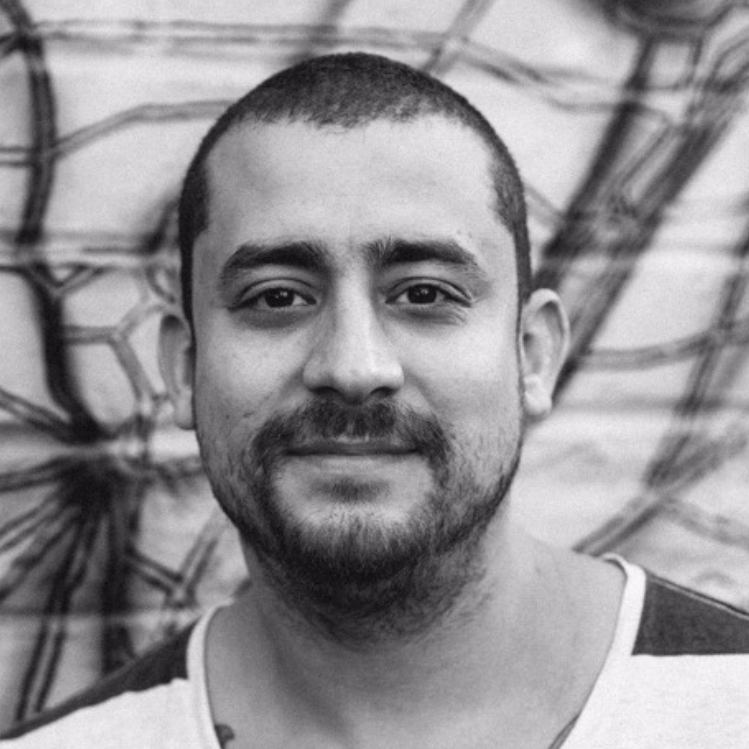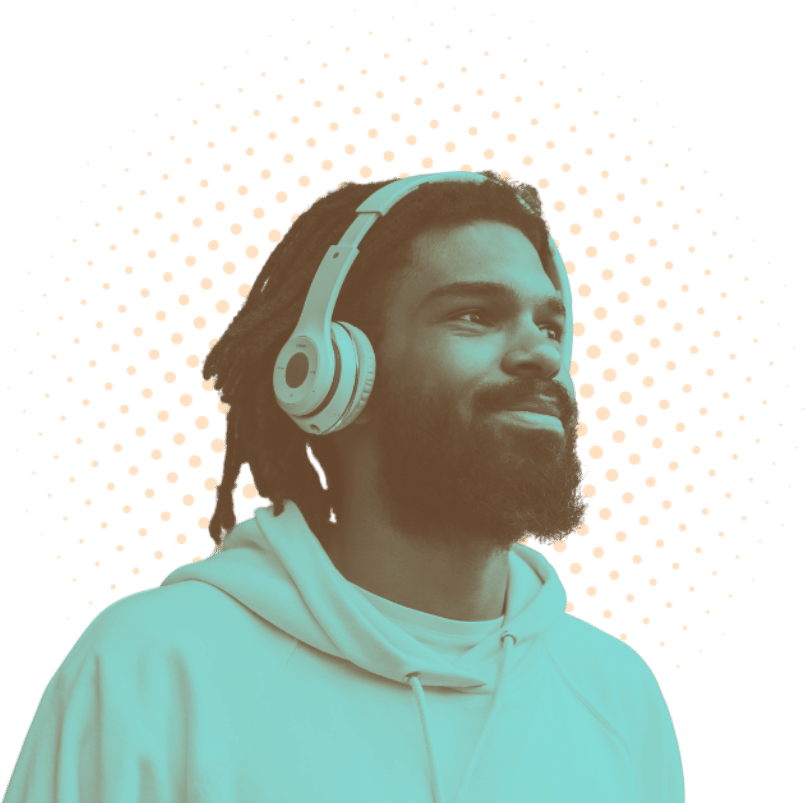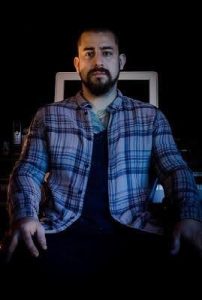
Studio 1 Zero
Atlanta, GA
Hear from Josh Monroy's Students
Notable Clients of Josh Monroy
-
Ludacris
-
Elton John
-
Skrillex
-
Outkast
-
Big Boi
AMPLIFY YOUR LIFE
WITH AUDIO
ENGINEERING AND
MUSIC PRODUCTION
IN-PERSON MENTORSHIP
Are you our next Success Story?

"*" indicates required fields
Notable Apprentices:
Meet Your Music Pro, Josh Monroy
Q. The King of ATL
Music Producer Josh Monroy’s Tips for Being Productive in Studio With Your Clients, His Experience In The Program, And Getting Hired By Ludacris.

Josh “iGLOo” Monroy started his music career in Atlanta where he worked with artists Elton John, Shinedown, Justin Bieber, OutKast, The Notorious B.I.G. and helmed the post of head engineer of The LudaPlex, Ludacris’ private production studio. During his time there, Josh earned several platinum and gold certified records including one for Justin Bieber’s “Baby” and a Grammy for Rap Album of the Year for the work he did with Ludacris.
Today, Josh co-owns Studio 1 Zero in Los Angeles where he recently produced, co-wrote, and recorded several tracks for pop/R&B star JoJo’s Mad Love, including the title track. The producer and audio engineer’s work also includes the Walla hit song “101” and original music for commercial clients including Acura, Harley Davidson and The Simpson’s!
We recently caught up with Josh to get his advice on how ambitious producers can be available and productive for the artists they work firstly, by knowing what’s in their own libraries and secondly, by getting smart about the way they manage their time while in-session with artists and clients.
How do you prepare for a session?
“Sometimes you need days or hours just to explore your sounds and get a good knowledge of what is held in your library. Before going into any writing session with an artist, know your library, know where to find your stuff, know how to get the sound for whatever hip hop artist or whatever rock artist or alternative or indie dance kind of thing you will be working on. Melding of these genres is what’s making music so special these days, so knowing the different genres and where to find those specific things, that’s extremely important.
Maybe one day is spent just working on Omnisphere and learning all the sounds they have to offer. Maybe the track you walk away with isn’t that great. But the intent wasn’t to make a hit track. The intent was to learn a specific plugin, and without doing that, you’ll never know that Omnisphere has great pluck sounds, synths, and cool human voice sounds.”
You tell your students to always be in ‘PRODUCTION MODE’ when clients are in the room, what does that mean?
“When the client is in the room, you should be quickly going into production mode, using the time that you’ve already spent going through your library, and know where things are to achieve the sonic palate that you’re looking for, that your client needs.
A problem I often see in people who are just starting out is that they want to spend all this time screwing around, tweaking a hi-hat or spending like 20 minutes getting a kick drum sound the way they want it. But until you have a song, none of that matters, because if your song sucks, who cares if the hi-hat’s dope? Who cares if the kick drum is the best kick drum you’ve ever designed, if the song is sh_t?
When your artist gets there, make sure you’re not fumbling around, you know, looking for a kick drum for half an hour. If you’re spending more than 10 minutes finding one sound, you’re losing your audience.
It should be about the song [and] moving the workflow efficiently and when you’re going back to your library of stuff, you know where to find it. Now, you’re a conduit. You’re not searching. Instead, you’re letting your knowledge, your confidence, and your library lead the way, and the creativity is just flowing left and right.”
You also tell students to, ‘BUILD THEIR BAND.’ What do you mean by that?
“I have a quick rule that I use for my production externs. Basically I tell them, “Look, you need to develop a band.” So your band is what? That’s a drummer, a bass player, and some type of instrumentalist. That’s a band…
So your drummer is all your drum parts, your kick, your snare, your hi-hat, maybe a crash, maybe a sound effect here or there, or a percussion element, right? So once you have those three parts, your bass, your drums, your instrumentation, whatever that instrument’s going to be…you need that one extra sound that makes it super special, so some type of lead sound, normally. That could be a vocal sample, it could be a lead guitar part, it could be a multitude of things. With those four elements, your drums, your bass, your instrument, and your plus one you have the makings of a song.
From there I tell my people they can start arranging. That means start putting verses together, figuring how the verse leads into the pre-chorus, or if it just goes straight into the chorus…
Arranging what is there, so that you have sections of a song for people to sing or rap to, there’s the chorus, our repetition, our hook, that’s the meat and potatoes of a record.
Do that and now everyone in the room is happy with you. Now everyone can hear the song in its barest skeleton form and they’re satisfied enough in their ears to know that, ‘Hey, okay, this is the record. I hear bass, I hear drums. I hear all the parts of what I would assume to be a song.’ From that point you can start looping certain sections, say the verse or the chorus, and adding to anything, and then go into tweaking your hi-hats for 10 minutes or whatever, while they’re writing and stuff.”
What’s your main goal for every artist writing session?
“They walk in the room and there’s no expectation, and then they leave six to eight hours later, and there’s this whole freaking song made, and it’s special, it’s about them and it’s encompassing their influences and what they love. It’s not just this generic track…That’s what I show my externs, is how to get inside someone’s head in a short period of time, use your time wisely so that the artist walks away satisfied.
I do two-hour drills with the students where they have two hours to make a track, and there has to be a full-on song, or music bed for a song anyway. That means intro, verse, chorus, the whole nine yards, Not just an 8-bar loop that’s looped over and over again for three minutes. I don’t want to hear that.”
Have you had any students who came in with zero experience and got hired by you soon after graduating?
“Cameron Torres…Cameron still works with us and for us. He’s actually doing a lot of songwriting for our projects and stuff, as well as mixing and vocal tracking. Cam was like, one of those guys that started out super quiet. Wouldn’t say a peep. But there on time, turned in all of his stuff on time…
He was one of those where I had to be like, ‘Hey dude, you need to speak up a little bit, man. How come you’re not getting in the rooms? You’re kind of like an outsider and there’s plenty of people to associate with and talk with and become friends with.’ And he said to me, ‘Man, I know you don’t know me, but it’s just because I’m not totally comfortable.’ And probably two weeks after that is like, I couldn’t get the kid to shut up, in a good way, I mean. And he immediately took on more responsibility… He built up that confidence, he learned Pro Tools and he was like, ‘All right, let me in now, I got this.’ It was like, all right, cool. Go. And he’s been with us for three years.
He just came to London with us, too, actually. We just took a big writing trip over to London in February. We had two RRFC students come with us, Sai Kripasagar and Cameron Torres, both graduates came with us [on a] big writing trip to London.”
Six months (the duration of our Audio Engineering & Music Production Program) can go by in a flash. What do you recommend students start working on as soon as possible?
“I think one of the biggest things and hardest things to teach is opportunity, how to recognize opportunity. And one of those, you have to know when to close your mouth and you have to know when to be like, “Yo, that’s me, I can do this, trust me.” But without that trust in that person having shown up and done the mundane…If I ask you to sweep the floor and the floor is half-ass swept, I just don’t know if I can trust you with my contacts and my network of people that I’ve built for 17 years…take pride in every single part of the job, whatever it is–Smile on the face, happy to do it…When I was an intern at Tree Sound was big on dressing on the side, and then they’d come back without the dressing…and the artist would say. ‘Oh man. Where’s my dressing at, bro?’ So it’s like, if I can’t trust you to remember something as simple as that, how am I ever going to trust you to run a million dollar room?
Another thing I would say is, you never know who’s walking through the door. They might be dressed as whatever but you treat everyone with respect. Everyone gets hospitality. I think hospitality is a huge part of this industry, making the lowest artist or the highest artist feel like, ‘Wow man, they really care about me.’”
How often do you talk with your externs about generating leads, getting clients, and networking?
“I hate to say networking, because it’s such a broad term, but who you know in this business it’s everything. Every day we talk about how to talk to people. And they listen. They’re right there when I make my business calls, or when I’m dealing with the promotions, or I’m talking to the publicists or any of those things. They get to see a lot of the aspects of not just owning a studio, but owning a record label, owning a production company, seeing me with other students, and teaching. So there’s a lot of different hats that I wear.
[When it comes to getting work] there are tools that you can use now like SoundBetter, to get your gigs out there… There’s Fiverr, there’s SoundBetter, there’s StudioTime, there’s a bunch of different outlets out there that you can literally just be right there at home, fielding emails, working, responding to potential clients, on SoundCloud, making networks and collaborations with people. You can do everything that you would do out in a bar or at an open mic night online as well. So just building that network [of connections]. ‘Okay, you’re a rapper, but man, maybe somebody can remix your stuff in the EDM world. That creates cross-promotion. So go and talk to some EDM people…That’s not your genre. I get it, but talk to these people because they got people, you know, they’re going to remix your record and now your audience has just doubled. So just being active on the platforms and thinking outside of your initial circle, just thinking bigger than yourself. I think it helps bring more clients in.
And then taking that into the real world. Go to School Night (at Bardot, Hollywood) or SuperSoul Mondays or any of these things that you can attend where there’s industry people there. There’s regulars there every single week. And if you’re there and you’re talking to people, you don’t have to make it about the work. You’re just like, ‘Man, I loved your set. That was really dope.’ And then you see them next time. You can just plant seeds. It doesn’t always have to be, ‘Hey man, I’ve got a studio and I charge $300 for a mix.’ It’s just like, ‘Dude, chill out.’ Just plant the seeds, let it grow…Everyone wants it so quick and immediate, but these are organic relationships. When you build that good network of friends and colleagues that you can call, you’ve got two people for everything you need, that’s what it’s about. I feel like it’s a balance of being present not just on Instagram, but [where] people that are looking for people like you.”
And finally, can you share your anecdote about getting hired by Ludacris?
“I lived very far away [from the studio I was working at]. I drove a Jeep and I couldn’t afford the gas money. On one hand, it was because I was broke that got me that gig. On another hand, it was always because I would stick around the studio. What was for me at my house with my brothers that I was living at, at 20-years-old just out of Full Sail, there wasn’t anything to do besides drink or play video games. It was like, ‘Man, I’m just going to stay here [at the studio]. This is cool. This is what I’ve wanted to do my whole life and here I am in it.’ A lot of times I’d find myself sleeping at the studio. There were showers. There was a kitchen. There was coffee. There was a snack room. I pretty much had everything I needed. I’m still a simple person but I just put myself out there.
Then one of those nights I was up there. It was just me in the studio, you know, the late night manager, and Ludacris called and I happened to be the one to answer the phone. I took the order for the session, basically. I called the studio manager. She couldn’t get anyone. It was very late. She was like, ‘Well, Josh, it looks like you’re going to do your first assisting gig for Ludacris.” And there you go. She found an engineer, luckily, and I went in and set up the room and all that kind of stuff. Then, as they say the rest is history. That engineer ended up quitting. Then boom. Luda offered me a job later on.”
Notes:
Over 19 years of music industry experience. Has worked with Elton John, Shinedown, Justin Bieber, OutKast, The Notorious B.I.G. Earned several platinum and gold certified records including one for Justin Bieber’s “Baby” and a Grammy for Rap Album of the Year for the work he did with Ludacris.